Writing The End of the Monsoon
In search of theme and setting
In March of 2007 I sold my first novel, The Desert Contract, in a two book deal, which meant I had to write another political thriller. But about what, and set where?
That summer, while finishing the publisher’s suggested revisions, I read Karen Armstrong’s A Short History of Myth. The final pages held my attention. She suggests that a novel can, at least to some degree, promote compassion and ‘challenge the hegemony of logos by combining the realistic with the inexplicable’. Her language and message was Buddhist. I am not, but I had spent the previous Christmas with my friends Dr. Brian Unger and Dr. Sheila Robinson in Phnom Penh, Cambodia. In just two weeks the country and its people left their mark.
Was it possible to combine the elements of a political thriller and love story, a page-turner, with a sub-theme of spirituality?
In October of 2007 I rented my house and left Calgary to spend seven months in Cambodia, with the idea of finding the material for another novel.
Introductions
Phnom Penh is not a large city and the expatriate area is small. I was fortunate to know people involved at a significant level in the development community. One introduction led to another. 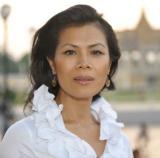 Brian was a consultant for a prominent local NGO and set up an interview with its executive director, the Cambodian-American author and political activist Theary Seng. Sheila worked as an anti-AIDS consultant for the Cambodian government; her friend Dr. Joyce Neal of the US Center for Disease Control introduced me to Rachel Snyder, an American writer and broadcaster. Joyce also asked me to escort her to a US Embassy party, where I made several acquaintance.
Brian was a consultant for a prominent local NGO and set up an interview with its executive director, the Cambodian-American author and political activist Theary Seng. Sheila worked as an anti-AIDS consultant for the Cambodian government; her friend Dr. Joyce Neal of the US Center for Disease Control introduced me to Rachel Snyder, an American writer and broadcaster. Joyce also asked me to escort her to a US Embassy party, where I made several acquaintance.
All these people had a serious interest in local politics, economics and culture. Seng introduced me to a graphic video suggesting the authorities were implicated in a local assassination; she also appears briefly in an Al Jazeera video about the discovery of oil in 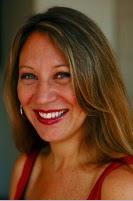 Cambodian waters. I rented Rachel’s apartment for four months, after she introduced me to expat businessmen, journalists and lawyers involved in the Khmer Rouge trials. All had something to offer. Senior US
Cambodian waters. I rented Rachel’s apartment for four months, after she introduced me to expat businessmen, journalists and lawyers involved in the Khmer Rouge trials. All had something to offer. Senior US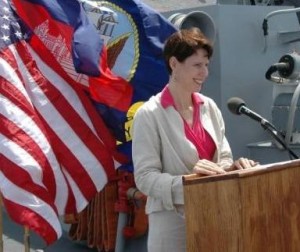 embassy personnel were in a class by themselves in knowledge and analysis.
embassy personnel were in a class by themselves in knowledge and analysis.
Cambodian household employees, some from the city, others from deep in the country, provided their own insights into local culture. The women were Buddhist to their bone marrow and had no problem combining Armstrong’s ‘realistic with the inexplicable’, because the inexplicable was as much a part of their lives as the wind and the rain of the monsoon.
Themes and plot
In two weeks I had my main themes. They were about ethical and moral corruption:
The conflict between the law and American energy security. How far should an embassy go to assist an American oil company when a foreign government asks for bribes?
The conflict between love and the spiritual life. What happens to an idealistic, intellectual, western Buddhist–when she’s ambushed by sex and an adulterous relationship? What path does she pursue to try to maintain her integrity?
In a month I had the bare bones of the plot for a political thriller with a tightly interwoven love story–and a spiritual sub-theme.
Characters
What does a writer mean, when he or she says that a character is ‘entirely made-up’, or admits (after a drink or two) that a character is ‘taken from life’?
In both cases the author is fooling themself (or trying to fool you).
No character is entirely made-up, unless perhaps we’re talking about pure fantasy fiction, hobbits and so on, a genre I haven’t read since adolescence. Every character has something in them of us, and of our observations of others. But even if we take a real character as a kind of human template, is it possible to portray the truth of a real person in a 100,000 word novel?
Of the four main characters in The End of the Monsoon, two were ‘entirely made-up’–with the caveats mentioned above. One shared certain elements of my own past. Of the other two, one was an amalgam of suggestions: a TV newscaster I watched from my apartment in Khafji, near the Kuwaiti border, during the Gulf War; my late wife’s interest in Buddhism; my own interest in music. The last I invented after several conversations with an officer in Phnom Penh.
The subsidiary characters were all suggested by real people, but only in the most superficial way. From one I took a character trait, from another an occupation, from yet another a vice, from a fourth a virtue.
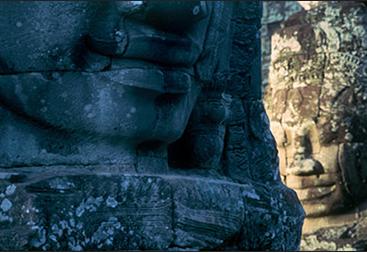
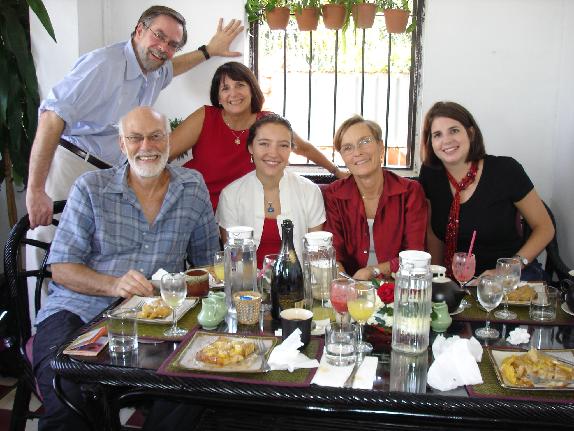

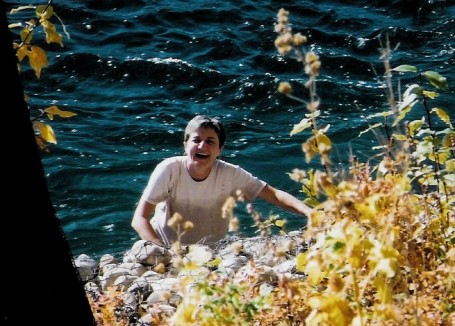
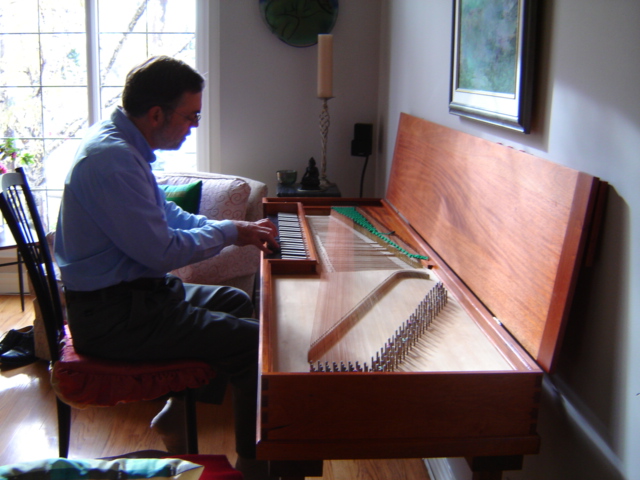

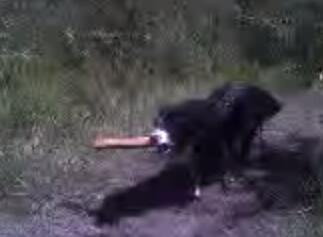
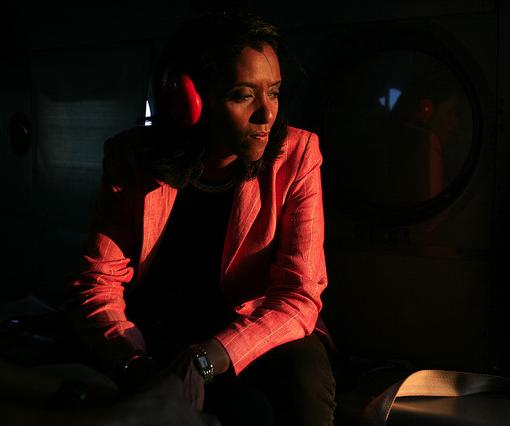
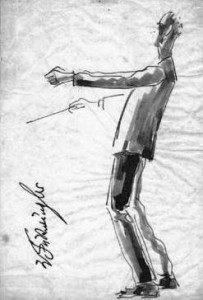

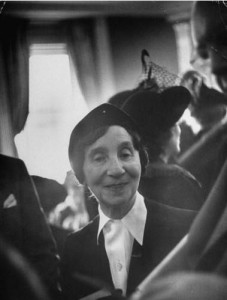
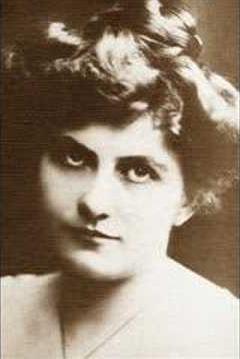
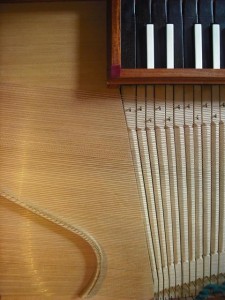
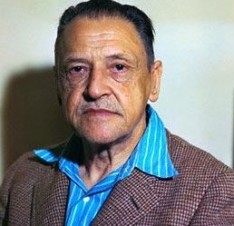
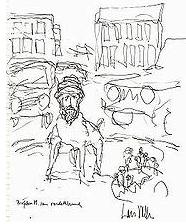


Hey, its arrived. Great to see and read this. I’ll keep on watching for updates.
Just wanted to say I enjoyed The Desert Contract, it was good company – just the right blend of pace, plot, theme and romance! I will look for your next book. Having just returned from a trip to Cambodia, The End of the Monsoon sounds doubly interesting.